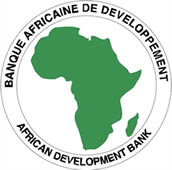 Private Enterprise Federation
Advocacy, Business Development and Market Access
Private Enterprise Federation
Advocacy, Business Development and Market Access
Advocacy, Business Development and Market Access
Private Enterprise Federation ICT Platform
The ICT Industry comprises telecommunications operators, internet service providers, VSAT data operators, software manufacturers, broadcast institutions, ICT education providers, internet cafés, etc. Generally, the Ministry of Communications and the National Communications Authority (NCA) oversee activities in the sector. They have established the necessary legal and regulatory framework which guarantees the safety of investments in the ICT industry Accra lies at the heart of the ICT industry as it hosts the headquarters and branches of many ICT companies as well as associated infrastructure and support companies.
Ghanaian timber is highly valued for its durability and aesthetic appearance. It is used in the manufacture of products such as floorings, furniture, carvings, toys, Mouldings, rafters, sea defense walls, wall cladding piers, and railway sleepers, among other items.
Ghana's utilities sector includes the Water, Sanitation and Electricity Sectors. Ghana water sector is segmented into two parts and are identified as the Urban Water sector and Community Water sector. The Urban Water sector comprises about 87 cities and towns where the national water utility- the Ghana Water Company Limited (GWCL) owns and manages water supply. The sector is under the dual authority of the Ministry of Water Resources, Works and Housing (MWRWH) and of the Ministry of Local Government, Rural Development and Environment (MLGRDE).
The hospitality industry is a broad category of fields within the service industry that includes lodging, event planning, theme parks, transportation, cruise line, and additional fields within the tourism industry. The hospitality industry is a multibillion-dollar industry that depends on the availability of leisure time and disposable income. A hospitality unit such as a restaurant, hotel, or an amusement park consists of multiple groups such as facility maintenance and direct operations (servers, housekeepers, porters, kitchen workers, bartenders, management, marketing, and human resources etc.) Tourism on the other hand is travel for pleasure; also the theory and practice of touring, the business of attracting, accommodating, and entertaining tourists, and the business of operating tours. Tourism may be international, or within the traveler's country.
The Ghanaian real estate market has seen significant expansion due to the rapid growth of the Ghanaian economy and the influx of foreign investors into the country. Demand for various types of properties is on the increase and there are high prospects for companies already operating in the industry as well as those seeking to enter the industry. Immense opportunities exist in the construction of residential houses, industrial and commercial houses as well as shopping centres, hotels, and hostels for tertiary institutions.
Ghana’s oil and gas prospects are significant. It is believed that Ghana’s oil and gas resources stretches across the country’s shoreline from the west (Cape Three Points) to the east (Keta). Similarly, the Voltaian Basin, which covers over 40 percent of the country’s land mass, is believed to have oil and gas reserves. This Voltaian Basin is yet to be fully explored and will be given priority attention during the medium period. The draft Bill to regulate the upstream petroleum industry is being reviewed with the view to reducing redundancies and further giving effect to the intention to consolidate the activities of the numerous regulatory agencies existing in the energy sector. It is believed that a smaller number of regulatory agencies is needed to manage the sector in order to ensure efficient and coordinated operation and enforcement of regulations.
Road transport is by far the dominant carrier of freight and passengers in Ghana’s land transport system. It carries over 95 percent of all passenger and freight traffic. Most communities, including the rural areas are accessible by road transport. The roads are classified under three categories: trunk roads, urban roads and feeder roads. The Ghana Highway Authority, established in 1974 has responsibility for developing and maintaining the country’s trunk road network totaling 13,367 km, which makes up 33 percent of Ghana’s total road network of 40,186 km. There are railway service connections in Accra, Kumasi, and Takoradi, and the major mining areas, to the sea ports.
Textile manufacturing in Ghana is an industry consisting of ginneries and textile mills producing batik, wax cloth, fancy printed cloth and Kente cloth. Firms have located in Ghana to serve local and regional markets with printed African patterned fabrics. The industry has shown signs of significant growth in recent years, promoting high-quality traditionally designed fabrics as "Made in Ghana" to niche markets, especially the US.
Ghanaian textile companies prefer to locate within designated industrial areas to take advantage of Ghana's free zone regime and stable operating environment.
Agriculture is the main driving force behind Ghana's economy, accounting for approximately 42% of the country's GDP and employing 54% of its work force. Ghana is the world's largest cocoa producer after Cote d'Ivoire. Ghanaian cocoa is grown by small-holder farmers. cash crops are an agricultural crops which are grown for sale to return a profit. It is typically purchased by parties separate from a farm. The term is used to differentiate marketed crops from subsistence crops, which are those fed to the producer's own livestock or grown as food for the producer's family.
The government of Ghana has encouraged the development of non-traditional industries over the past decade in order to diversify the country's export base. Horticulture has been a central and a major benefactor of these efforts. Four main horticultural enterprises can be found in Ghana. They are: Vegetable crop production, Fruit crop production, Landscape horticulture, Floriculture, Nursery stock production. The major crops that are mainly produced in the horticultural sector include the following: Pineapple, Mango, Papaya, Banana, Citrus, Chili pepper, Tomatoes, Plantain, Other fruits and vegetables. Production of exotic (European) vegetables such as lettuce, cabbage, cauliflower, onion, spinach, tomato, carrot, French bean, turnip, cucumber, beet, and radish is concentrated in and around the principal towns and cities of the country.


































